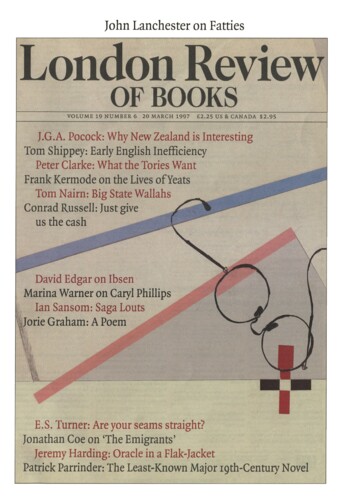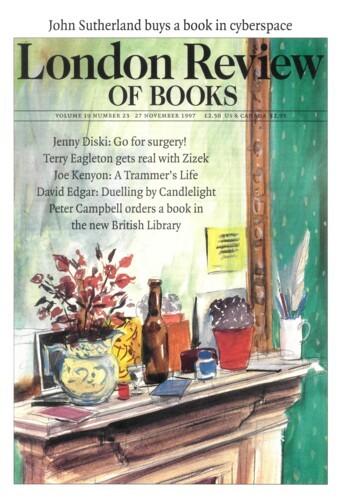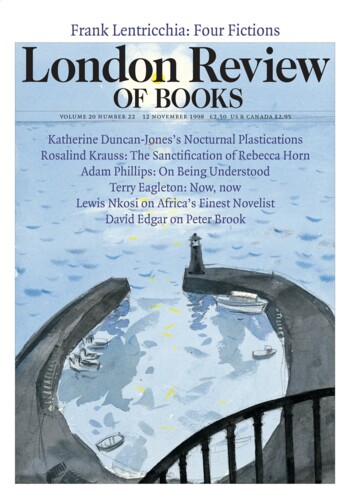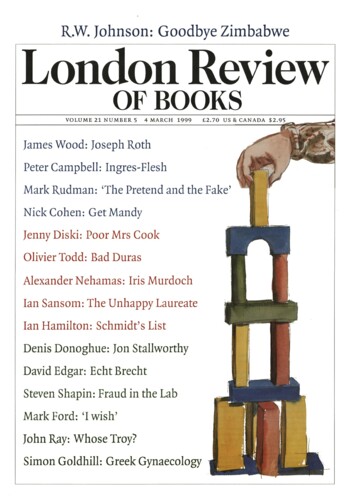Which is the hero?
David Edgar, 20 March 1997
There is little about the charming Hotel Tramontano in Sorrento to indicate quite what inspired Henrik Ibsen to write a play about congenital syphilis while staying there, and not much more (I am assured) in the equally delightful Hotel Luna at Amalfi to evoke the dark midwinter drama of A Doll’s House. The incongruity between the stark Scandinavian gloom of the major plays and the Mediterranean lushness of the places where Ibsen wrote them is a warning against reading the art too readily from the life, and one that Robert Ferguson has not heeded. For him, the life is the only way to support his thesis, which is that the great plays aren’t great at all, and that after Ibsen’s first success, Peer Gynt (written at Casamicciola, Ischia, in 1867), it all went horribly wrong.




